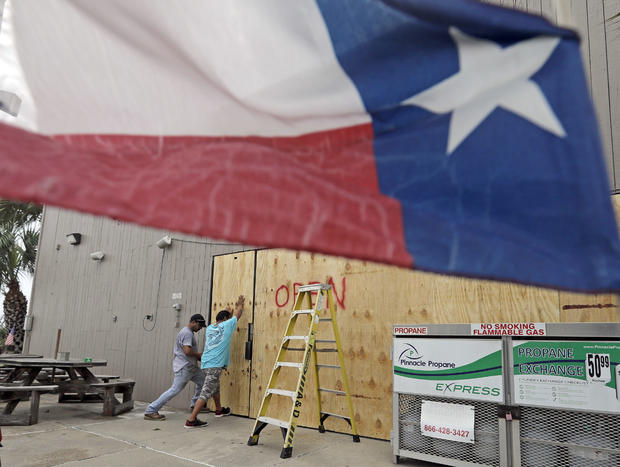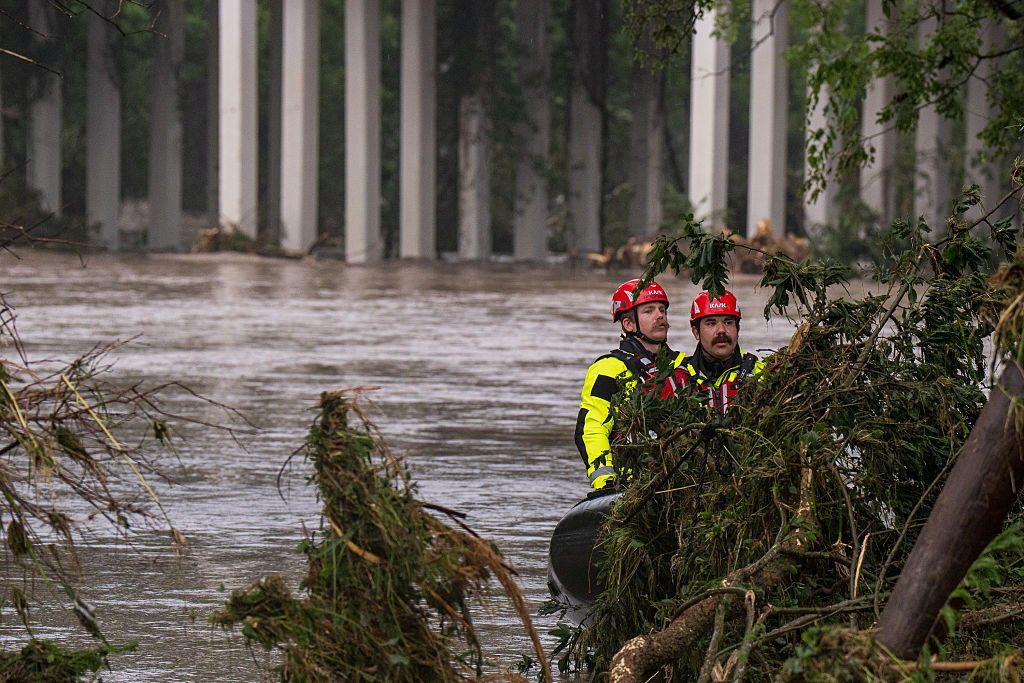Hurricane Harvey: How homeowners should prepare
Julie Rochman has seen her share of hurricanes. As president of the Insurance Institute for Business & Home Safety, her job includes predicting and assessing the kind of storm damage that experts fear Hurricane Harvey is about to inflict on Texas.
So when she advises residents and business owners in the path of the storm to be ready to evacuate, they should listen.
"Harvey is a dangerous storm which people need to take seriously," Rochman said. "It has gone from disorganized to dangerous. It will come ashore with force and sit there. So if your local emergency manager calls and says get out, then go."
With Harvey shaping up as possibly the fiercest hurricane to hit the U.S. in a dozen years, more than 200,000 homes are at risk of storm surge damage in Texas, according to Core Logic. The real estate analytics firm estimates the potential reconstruction value of those properties at $40 billion.
One reason for concern: Hurricane Harvey has all the attributes of a "perfect storm," meteorologists say, with high winds, storm surge and an expected three feet of rain that could turn roads into raging rivers. "It doesn't take a lot of water for streets to become dangerous," Rochman warned.
When wind and water are major threats, here's what you should do if you have time, she said:
- Put lawn furniture inside or bolt it down. It can become missiles in high winds.
- Prepare the inside of your home by taking electronics off the floor and putting them in high places. Also roll up area rugs so they don't become sponges.
- If available, get sandbags and tuck them anywhere that water is likely to enter your home.
- Cover windows with storm shutters or pre-cut plywood that can be bolted into place. If you're a Gulf Coast veteran who survived Hurricane Ike in 2008, you might already have these protections.
- Make sure your sump pump can operate on battery power and has fresh batteries. Your electricity is likely to go out.
- Caulk the non-obvious cracks and holes, such as where cables come into the house. Driving rain can also find its way in.
- Gas up your car in case you have to evacuate. Flooding caused by Harvey could slow or shut down several Gulf Coast refineries, so there will likely be long lines at the pump.
- Assemble a "go kit" in case the "going" gets really tough. It should include documents such as birth certificates, Social Security cards, medications, prescriptions and your homeowners' insurance policy. Your regular insurance policy won't cover flooding, but hopefully you have a flood policy if you reside in the Gulf Coast area.
- Remember to take your pets with you, and bring along animal carriers and leashes.
- Call or text those outside the area where you live to let them know where you're headed.
Most important, don't be a hero unless you have to.
"Texans are their own people," Rochman said. "I'm sure a lot of them are saying, 'I rode out Hurricane Ike in 2008.' But Texas officials are already on the phone warning that they are issuing toe tags for people who don't leave when told to. Officials don't want to put first responders in harm's way."




